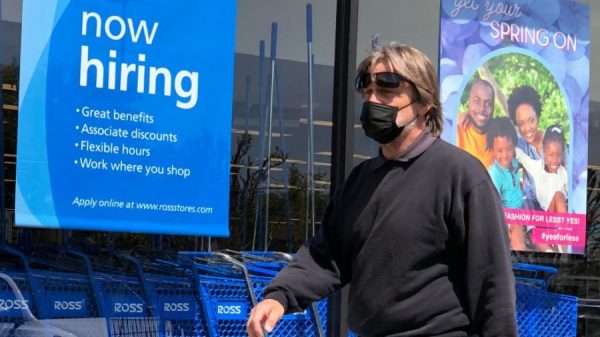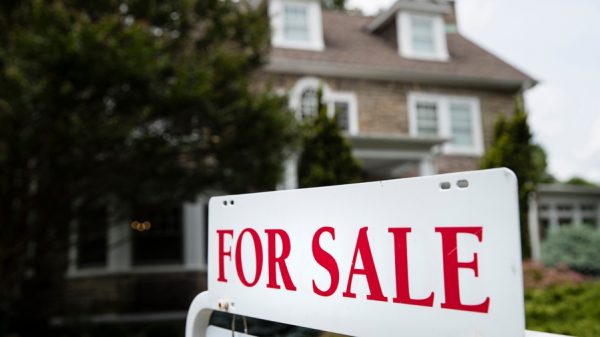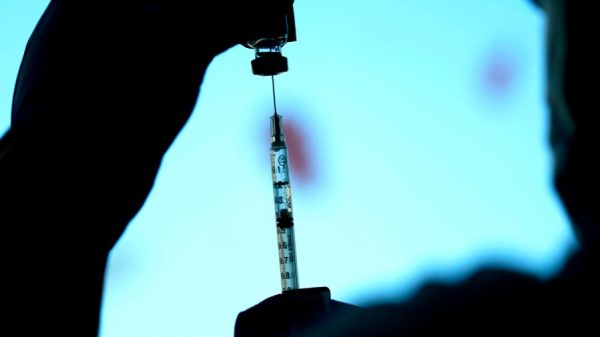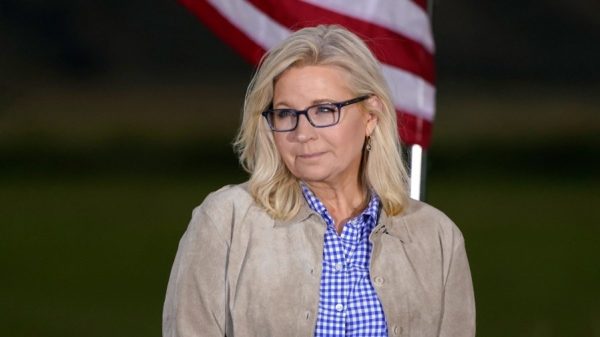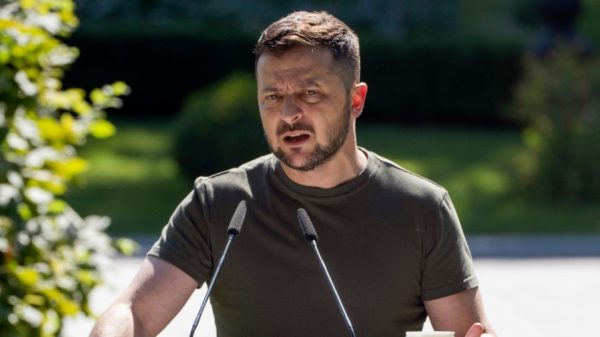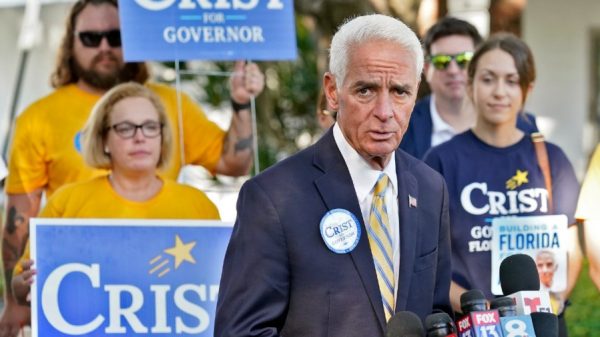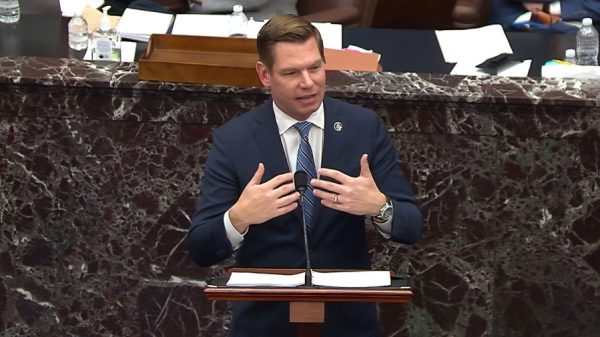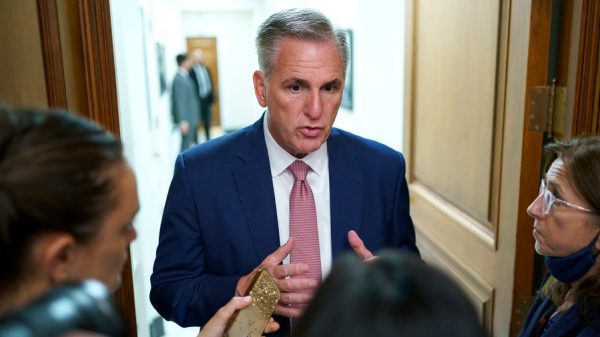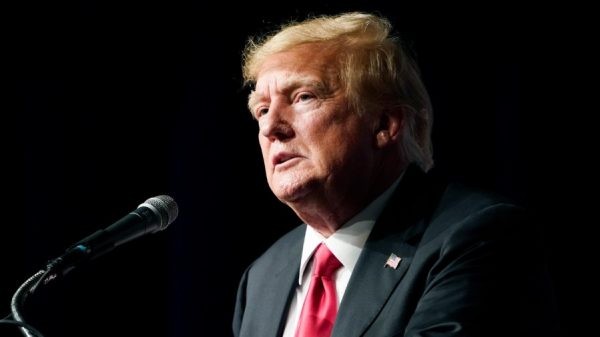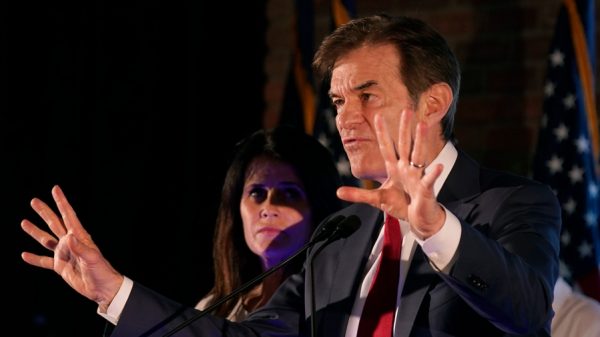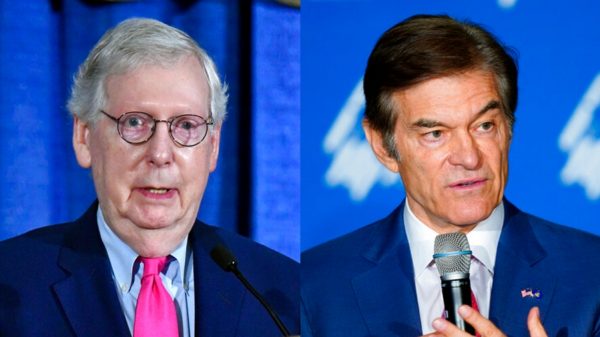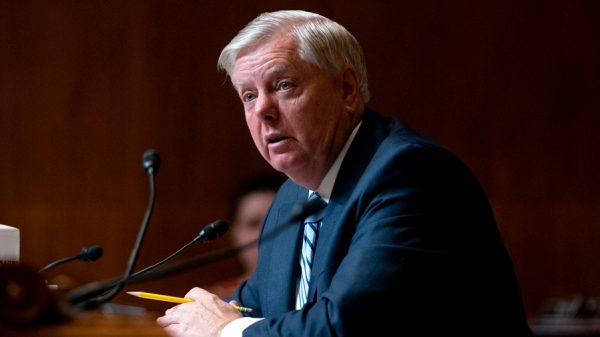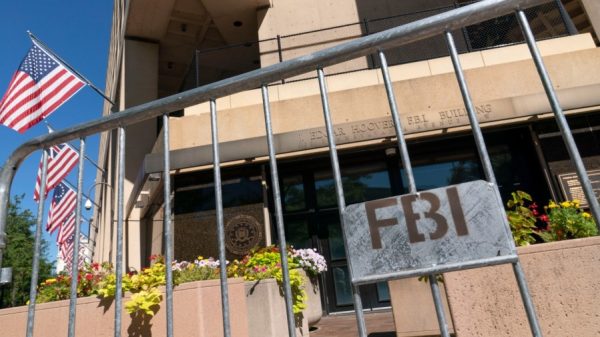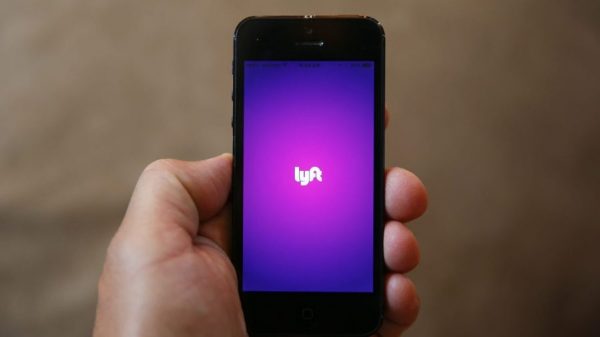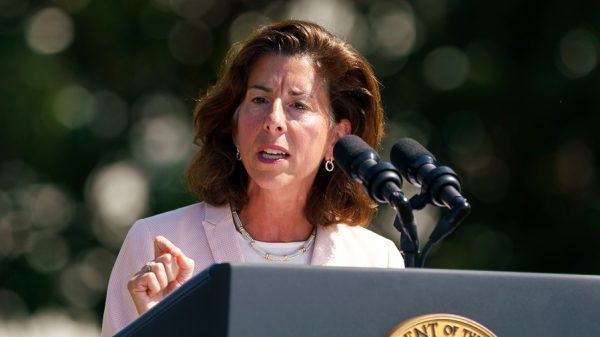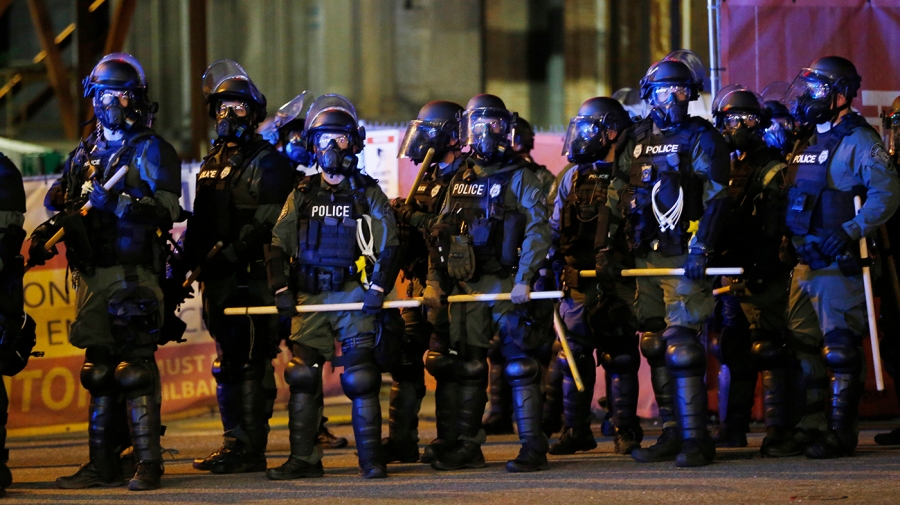Lingering disputes between House Democrats have once again threatened action on a series of public safety bills this summer, creating headaches for Democratic leaders while highlighting sharp divisions within the party less than three months ahead of the midterm elections.
The clash pits Democrats facing tough reelection contests in November — “front-liners” who want to vote quickly to bolster the nation’s law enforcement agencies and defuse GOP attacks about Democrats being soft on crime — against liberals demanding stronger accountability measures aimed at curbing police abuses.
After delaying action on a police and community safety package before the long August recess, Democratic leaders had hoped to unite the caucus behind the bills this week, when the House returns briefly to Washington to approve the massive health, climate and tax legislation passed by the Senate on Sunday. Indeed, as they left town late last month, several of the top negotiators had all but guaranteed the vote would happen this week.
“That is what I have asked for, and been told,” Rep. Joyce Beatty (D-Ohio), head of the Congressional Black Caucus who is central to the talks, said as Congress was leaving Washington on July 29.
That timeline has hit a wall, however, in the form of the progressive lawmakers demanding new oversight and other accountability measures. Those voices want a better seat at the table — and to delay any vote on police funding before then.
“The hope would be that Democrats just do reconciliation this week and that we come back to policing at another time, whenever they can get together on it,” a senior aide with a progressive office said Monday.
“That would mean the negotiations would be able to continue,” the aide added, “and progressives would be able to be part of those conversations and say, ‘OK, let’s find the accountability language that people can feel comfortable with. And let’s get to a place where this can be a unifying position for Democrats, instead of splitting the caucus.’ ”
Democratic leaders are downplaying any divisions, leaving open the possibility that a vote on the public safety package could still materialize this week.
“Conversations are ongoing,” said a second senior Democratic aide.
Still, in a week when Democrats are poised to score a huge victory on the climate and health care package — representing a big chunk of President Biden’s domestic agenda — party leaders also don’t want to shine any bright lights on the internal strife over how to approach police funding.
While the House Rules Committee is scheduled to meet Wednesday to send the Senate-passed reconciliation bill to the floor for Friday’s votes, the policing package is not on the week’s schedule. And several Democratic sources said they don’t expect it to be added.
Speaker Nancy Pelosi (D-Calif.) on Tuesday promoted the policing package, suggesting new federal funds are needed to ensure both public safety and accountability in policing, particularly in small, underserved areas.
“Small towns really don’t have enough funding for police to have accountability,” she said. “There is grave reason for people to be concerned about needing justice in policing, I grant that. But this would have accountability for the first time.”
Yet asked about the timing of the vote, Pelosi declined to comment, deferring to Beatty and the Black Caucus.
“I don’t know, I just don’t know,” she said. “It’s just up to the Black Caucus. I’ll follow their lead on this.”
Beatty’s office did not respond to multiple requests for comment this week. But the Black Caucus chair had predicted in July that an agreement, while delayed, was also inevitable.
“Obviously we have a big tent. There are people who wanted a variety of things. And so we’ve reached a great consensus that we’re going to get the entire package done,” she said.
Another delay, if it materializes, is sure to infuriate the front-liners, who want to tout their support for law enforcement heading into tough reelection contests in November — and distance themselves from the liberal “defund the police” campaign that had hurt moderates at the polls in 2020.
The internal dispute over accountability provisions had already blown up an initial plan to move the police funding package late last month alongside an assault weapons ban, exasperating some of the vulnerable moderates looking to boost their chances in November.
The critics are focusing the blame for the impasse on the head of the Congressional Progressive Caucus, Rep. Pramila Jayapal (D-Wash.), and certain members of the far-left “squad,” who have threatened to sink police funding bills in the past unless they include strong accountability measures. That wish list includes provisions like an end to no-knock warrants and a check on qualified immunity, the shield that protects police officers from certain lawsuits.
“It’s that handful of, you know, five, six people — Jayapal and the squad members — and they’re the ones that once again torpedo the Democratic majority,” said one front-liner, speaking anonymously to discuss a sensitive topic.
“Their feelings were hurt. They weren’t consulted soon enough. They don’t claim they had enough time,” the lawmaker continued. “They don’t want to do anything that might be interpreted as positive for policing in America. I mean, that’s just craziness. I mean, everybody supports the police. If you don’t, you’re a fool.”
The progressives are disputing such charges, saying last month’s “deal” was no deal at all because leaders of the Progressive Caucus had never signed off on it.
“If you need progressive votes, you need progressives to be at the table with this agreement,” said the progressive aide. “There were people who were not members of CPC who decided on this agreement. To just ask everyone to vote for it, that’s just not going to be successful.”
Other key negotiators throughout the debate have been Rep. Josh Gottheimer (D-N.J.), a co-chair of the bipartisan Problem Solvers Caucus who has a bill to boost federal funding to smaller police forces around the country; and Rep. Abigail Spanberger (D-Va.), another front-liner whose legislation targets funds to community-centered policing, known as the COPS program.
Both have argued the value and popularity of helping small, community-based law enforcement agencies, particularly in a time of increased crime and local government budget crunches.
“I would venture a guess that probably every single member of Congress has either a department in their communities that either receives COPS grants funding, or wants to receive COPS grants funding,” Spanberger told reporters as Congress left for the August break.
She also acknowledged the political advantages of moving the package sooner rather than later.
“Certainly, having more time to talk about it is helpful,” Spanberger said.


